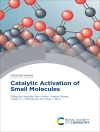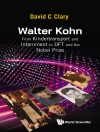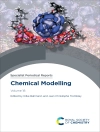Heterogeneous catalysis has developed over the past two centuries as a technology driven by the needs of society, and is part of Nobel Prize-winning science. This book describes the spectacular increase in molecular understanding of heterogenous catalytic reactions in important industrial processes. Reaction mechanism and kinetics are discussed with a unique focus on their relation with the inorganic chemistry of the catalyst material. An introductory chapter presents the development of catalysis science and catalyst discovery from a historical perspective. Five chapters that form the thrust of the book are organized by type of reaction, reactivity principles, and mechanistic theories, which provide the scientific basis to structure-function relationships of catalyst performance. Present-day challenges to catalysis are sketched in a final chapter. Written by one of the world’s leading experts on the topic, this definitive text is an essential reference for students, researchers and engineers working in this multibillion-dollar field.
Contents:
- Preface
- About the Author
- Heterogeneous Catalysis: History and Processes
- Founding Principles of Heterogeneous Catalysis Science
- Catalytic Hydrogenation Reactions
- Selective Catalytic Oxidation Reactions
- Solid Acid Catalysis
- Molecular Heterogenous Catalytic Reactions
- The Catalytic Enterprise
- Index
Readership: Researchers, academics, instructors, engineers, graduate and undergraduate students in catalysis, surface science, chemistry (inorganic, physical, computational) and chemical engineering. The first half of the book will also be appealing to historians of science.
‘This new book by Rutger van Santen approaches the subject of heterogeneous catalysis from the understanding that can be gained from molecular physical chemistry. It is unique in this respect and will rapidly be adopted as the ‘must read’ text.’ – Graham J Hutchings CBE FRSRegius Professor of Chemistry, Cardiff University, UK
‘The book is an interesting one as it puts the aspects of heterogeneous and molecular catalysis in a proper context, and mechanistically link the apparently different worlds.’ – Bert M Weckhuysen FRSCDistinguished University Professor, Utrecht University, The Netherlands
Key Features:
- Reaction mechanism and kinetics are discussed with a unique focus on their relation with the inorganic chemistry of the catalyst material
- Catalytic science of industrially important catalysts is presented within the context of their discovery












